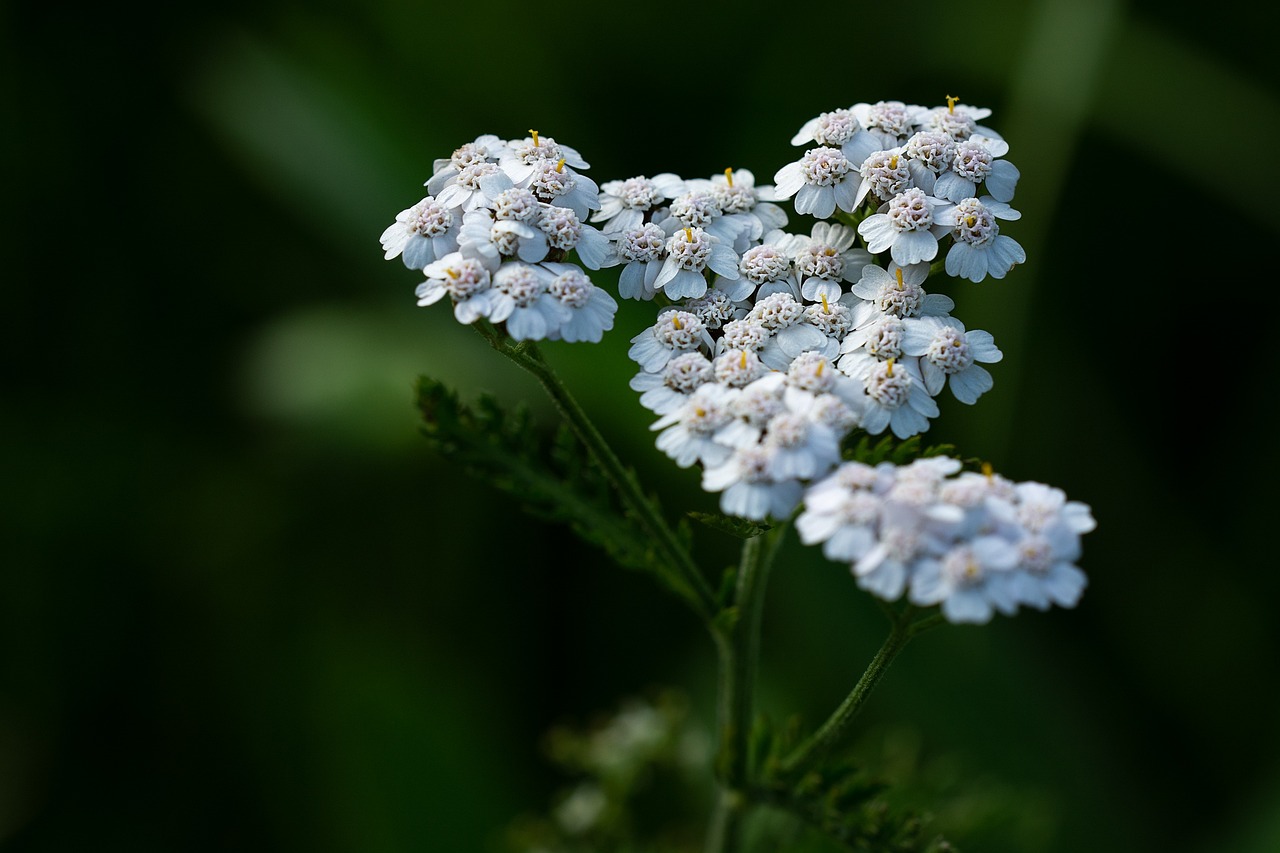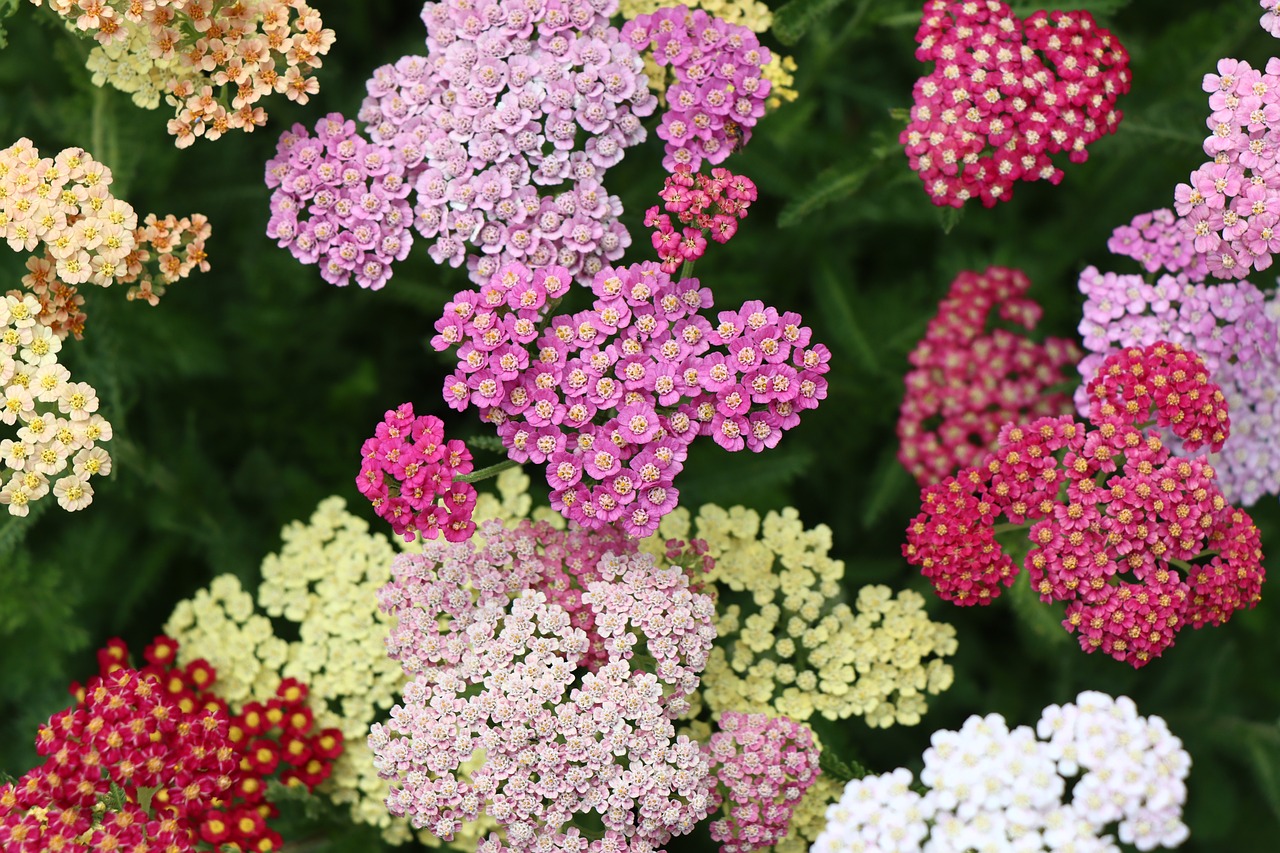When we think about medicinal plants, what comes to mind are common herbs, but have you heard of yarrow?
The medicinal uses of yarrow, date back centuries in traditional medicine, with a wide range of benefits. Yarrow can help combat common ailments, from treating digestive problems to relieving pain.
Medicinal uses of Yarrow include:
- Anti-inflammatory
- Digestive support
- Wound healing
- Menstrual or stomach cramps
- Anxiety and stress
Yarrow is an herb that you should definitely consider adding to your herbal medicine cabinet.

Discovering the Many Medicinal Uses of Yarrow
1. Anti-inflammatory Properties
One of the biggest benefits of yarrow is its anti-inflammatory properties.
Yarrow is rich in anti-inflammatory compounds such as flavonoids and sesquiterpene lactones, which can help reduce inflammation in the body.
This makes it a great herb to combat conditions such as arthritis, allergies, and eczema.
Drinking yarrow tea or applying yarrow oil topically can help soothe inflammation and provide relief. (See preparations below.)
2. Digestive Support
Yarrow is also known for its digestive benefits. It can help stimulate the production of digestive juices, which can ease symptoms such as bloating and gas.
It can also aid in digestion of fatty foods by increasing bile flow from the liver.
Steeping dried yarrow leaves in hot water to create tea can provide relief from digestive issues, such as stomach cramps and diarrhea.
3. Wound Healing
Yarrow is a magical herb that has been used for centuries in herbal medicine. When it comes to wound healing, making a poultice or paste with yarrow can be a game-changer.
Not only can it accelerate the healing process, but it can also reduce inflammation and prevent infections. In no time, you will start to see the difference in how quickly your wound will heal. Say goodbye to pesky infections and hello to natural wound healing with yarrow!
Yarrow contains a compound called achilleine, which has antiseptic and healing properties that helps wounds heal faster. It’s also effective in stopping the bleeding by making blood clot faster.
Making a yarrow poultice or paste is a great remedy for treating cuts, bruises, and bug bites. Simply crush yarrow leaves and apply directly to the affected area.
4. Menstrual Pain and Stomach Cramps
For many people, menstrual cramps can be a painful and uncomfortable experience. Yarrow can be an effective natural solution to relieving menstrual pain. It helps reduce cramping by relaxing the muscles in the uterus and improving blood flow.
Drinking yarrow tea during your menstrual cycle can help relieve symptoms like bloating, cramps, and headaches associated with menstrual pain.
The antispasmodic properties also help to calm and relax the muscles in the digestive tract, making it a go-to for those suffering from painful and uncomfortable stomach cramps.
Whether you prefer to brew a cup of yarrow tea or incorporate it into your meals, this powerful herb is definitely worth considering when it comes to natural remedies for stomach cramps.
5. Anxiety and Stress
Lastly, yarrow can also help reduce anxiety and stress levels.
Yarrow contains compounds such as chamazulene, which has relaxing properties that help calm the nerves and promote relaxation.
Drinking yarrow tea or using it in a diffuser can help alleviate symptoms of anxiety and stress.
Preparing Yarrow for Medicinal Use
Before you start using Yarrow, it’s important to know how to properly prepare it for medicinal use. This brief guide will give you the basics of preparing Yarrow so you can ease your worries and maximize the benefits of this powerful herb.
Yarrow is a powerful herb that can help relieve pain, inflammation, and other conditions, but it must be prepared properly to reap the benefits. By
- harvesting
- drying
- preparing
- making tea
- making a tincture
- diffusing
With the following simple steps, you can make sure that you’re using this herb effectively and safely.
Harvesting Yarrow
To start, you need to harvest Yarrow. This plant grows in open fields or meadows and is easy to spot with its white or yellow flowers. Harvest on a sunny day at peak bloom to ensure the highest potency and vibrancy of the plant’s medicinal compounds. Cut the flowers up to 6 inches from the stem, leaving the lower part of the plant intact.
Drying Yarrow
After harvesting, dry the Yarrow by tying the stems together in small bundles that you can hang upside down in a well-ventilated area to prevent mold and other bacteria growth. Yarrow loses its potency after a couple of years, so be sure to replace your stock regularly to ensure freshness.
Preparing Yarrow
Prepare Yarrow by reducing the dried flowers into small pieces or powder using a mortar and pestle. A coffee grinder is another option if you want to reduce the plant into a finer powder. Once you’ve broken down the dried flowers, store them in airtight glass containers in a cool, dark location with low humidity.
Infusing Yarrow into Tea
Yarrow can be enjoyed as a nutritious tea that can cure or prevent a cold, flu, or other respiratory ailments.
To prepare Yarrow tea, mix 1-2 teaspoons of dried Yarrow flowers in a tea ball and infuse in a cup of hot water for 5-10 minutes, strain it, add honey or lemon if desired, and enjoy the refreshing, healthy infusion. (Or for a stronger version, make a decoction,)
Using Yarrow as a Tincture
Yarrow can also be prepared as a tincture or alcohol extract, which generally has a more concentrated effect and a longer shelf life. To prepare Yarrow tincture, fill a jar with a dried Yarrow flower and pour high proof alcohol in it and let steep for a few weeks, then strain it.
Making a Poultice or Paste
The process of making a poultice or paste of yarrow is easy and straightforward. First, gather fresh yarrow leaves and crush them to release the juice. Then, mix the crushed leaves with water or honey to create a paste or poultice. Apply the poultice or paste to the wounded area and cover it with a clean cloth or bandage.
Diffusing Yarrow Essential
Adding a few drops of yarrow essential oil to your diffuser can offer a wide range of benefits.
Yarrow is known for its anti-inflammatory properties, making it a natural solution for alleviating stress and anxiety.
It can also help alleviate respiratory issues, making it an ideal oil to use during the cold and flu season.
In addition to its health benefits, the aroma of yarrow oil has a calming effect on the mind, helping to promote relaxation and restful sleep.
If you’re looking for a natural way to promote relaxation and alleviate stress, consider using yarrow oil in your diffuser.
The yarrow plant is like a rainbow with its array of colors
Each as powerful as the next. From white to yellow, pink, to red, yarrow provides a natural remedy for many ailments.

Each of the yarrow flower essential oils contain anti-inflammatory and antibacterial properties that can help soothe rashes and wounds.
Beyond its medicinal benefits, yarrow is a beautiful and fragrant addition to any garden.
The many medicinal uses of yarrow
Yarrow is a powerful herb with many medicinal properties that can help improve our overall health and well-being. From fighting inflammation to healing wounds, this herb can be a great addition to your natural remedies toolkit.
Whether it’s drinking yarrow tea or applying infused oils to sore muscles, exploring the many uses of this fascinating herb can be both enjoyable and beneficial.
Want to easily grow this and other medicinal herbs? Grow here!
As with any herbal remedy, be sure to consult with a healthcare professional before using it as a treatment option.
